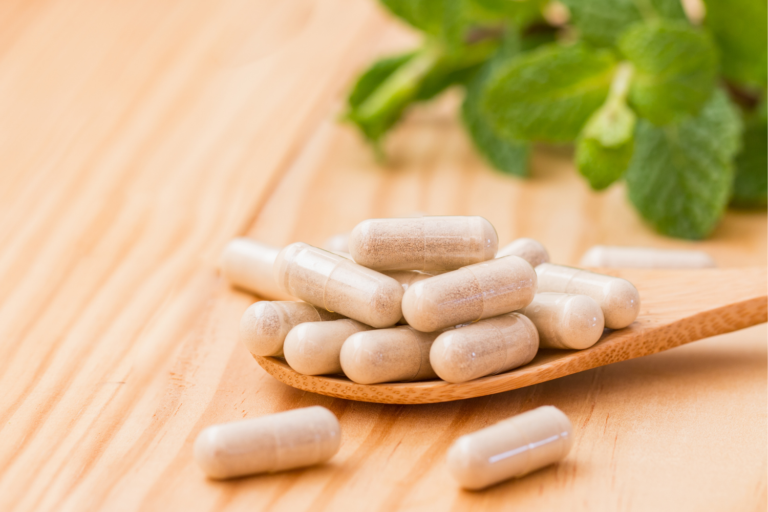Choosing the right supplement manufacturer is a critical decision that directly affects product quality, customer expectations, and overall business success. A reputable supplier with a reliable supply chain supports your brand’s growth, maintains compliance, and reduces risk. Many suppliers may offer similar services, but asking the right questions helps determine which partners truly align with your business goals.
Manufacturer vetting questions are essential for evaluating manufacturing capabilities, production capacity, pricing, lead times, and safety standards. These key questions also reveal insights into a company’s track record, documentation processes, and ability to provide references. Strategic questioning allows you to assess potential suppliers efficiently, ensuring you partner with manufacturers who can meet demand, offer volume discounts, and deliver consistent quality.

10 Essential Questions to Vet Your Supplement Manufacturer
Asking the right manufacturer vetting questions helps you uncover critical factors that directly affect your supplement brand’s success. These key questions go beyond surface-level conversations and help you evaluate potential suppliers based on production capacity, quality, compliance, and reliability. They also help you assess whether a manufacturer can align with your business goals, manage a reliable supply chain, and support cost-effective growth.
1. What Certifications and Accreditations Do You Hold?
Certifications are a clear way to determine if a supplement manufacturer follows industry safety and quality standards. These third-party approvals show a manufacturer’s commitment to product quality, compliance, and ethical manufacturing processes. Choosing a supplier with the proper certifications gives you more confidence in their ability to meet customer expectations and regulatory requirements.
- GMP (Good Manufacturing Practices): Compliance with GMPs is required by the FDA for dietary supplement manufacturers under 21 CFR Part 111. Certification through third parties helps demonstrate ongoing adherence to these standards.. Ensures safe, clean, and controlled production environments and helps maintain consistency in product quality and processes.
- FDA Registration: Required for U.S. dietary supplement facilities under the Bioterrorism Act. While it does not imply FDA approval, it is a necessary step in legal operation.
- NSF Certification: Indicates that a third-party organization has verified the facility’s adherence to recognized quality and safety standards, often including GMP compliance, which builds trust with clients and customers.
- ISO (International Organization for Standardization): Focuses on quality management systems that help companies reduce errors, streamline processes, and increase customer satisfaction.
2. How Do You Ensure Quality Control and GMP Compliance?
Every supplement manufacturer should have a documented quality assurance process. This includes routine internal checks, batch testing, and compliance with GMP guidelines. Manufacturers typically conduct regular audits—both internal and external—to confirm adherence to safety and quality protocols. These processes ensure consistent product quality, minimize production risks, and protect your brand’s reputation.
Ask how they manage product recalls, handle deviations in the production process, and document quality checks. A strong system reduces supply chain disruptions and helps meet industry regulations.

3. What Is Your Experience with Similar Products?
Experience in manufacturing similar nutrition or wellness products gives a supplier the advantage of knowing your industry, audience, and product expectations. A manufacturer with a proven track record in your category—whether it’s vitamins, protein powders, or herbal supplements—will better understand specific formulations, compliance needs, and packaging preferences.
This experience also shows the manufacturer’s ability to scale production, meet deadlines, and avoid costly errors. Ask for examples that show how they’ve helped other companies in your market succeed.
4. Can You Provide Details on Your Ingredient Sourcing?
Knowing where and how ingredients are sourced ensures product quality, sustainability, and transparency. A reputable supplier should be able to trace their raw materials back to the original source and provide documentation on purity and safety. This is important for product consistency and customer confidence.
Ask if they work with domestic or international ingredient suppliers, how they test raw materials, and how they handle sourcing challenges. Clear sourcing processes also help reduce risks in your supply chain and support ethical business practices.

5. What Are Your Minimum Order Quantities (MOQs) and Lead Times?
Your manufacturer’s minimum order quantity (MOQ) and lead times should match your business size, growth plan, and inventory needs. Some companies require large minimums, which may not work for newer brands or smaller budgets. Others are more flexible and offer low MOQs to support startups or trial runs.
Lead times affect how fast you can launch or restock your products. Ask how long it takes from order to delivery and what factors might delay shipping. Aligning production capacity with demand helps avoid stockouts or excess inventory and supports cost savings through better planning.
6. Do You Offer In-House Testing or Utilize Third-Party Labs?
Testing confirms that your supplement meets nutritional label claims and complies with safety standards. Ask if the manufacturer performs in-house testing or works with certified third-party labs. Each has benefits: in-house labs speed up testing, while third-party labs provide unbiased results that support product credibility.
Testing should cover raw ingredients, finished goods, and microbial or heavy metal contamination. Reliable manufacturers typically combine both methods to maintain high product quality and regulatory compliance.
7. What Support Do You Provide for Product Development?
Some manufacturers go beyond production and offer research and development (R&D) services. These services can include help with product formulation, flavor selection, and packaging design. This is especially useful for companies launching private-label products or developing specific products for niche markets.
Ask if they can assist with adjusting formulas to meet new trends or dietary standards. Working with a manufacturer that supports product development streamlines your process and cuts down on time spent coordinating between many suppliers.
8. How Do You Handle Regulatory Compliance and Labeling?
Manufacturers must follow FDA regulations for production and labeling, while the FTC oversees the accuracy of marketing and advertising claims. Your manufacturer should have a clear process for ensuring your labels meet regulatory standards and include the required disclaimers, ingredient lists, and claims.
They should also guide you through label reviews, testing results documentation, and compliant marketing language creation. This support protects your brand from legal issues and ensures product integrity across all channels.
9. Can You Share Client References or Case Studies?
Evaluating a manufacturer’s performance with past clients can give you valuable insights into their communication, reliability, and ability to deliver on time. Ask for client references or published case studies detailing results, solved challenges, or long-term partnerships.
Hearing from real clients helps you determine how the manufacturer manages customer relationships, handles unexpected issues, and adapts to changing business needs. A manufacturer with a strong track record will likely become a dependable long-term partner.
10. What Is Your Policy on Intellectual Property and Confidentiality?
When sharing custom formulations or branding details, you must know how the manufacturer protects that information. Ask about their confidentiality policies, non-disclosure agreements (NDAs), and procedures for handling proprietary data.
Clear guidelines on intellectual property (IP) protection help reduce the risk of copycat products or leaks to competitors. A professional manufacturer will have legal frameworks in place to safeguard your ideas and give you confidence in the partnership.
Additional Considerations When Vetting Manufacturers
Beyond the key manufacturer vetting questions, there are other critical factors that help determine if a supplier is the right fit for your business. These additional considerations can reveal deeper insights into the manufacturer’s reliability, internal processes, and long-term value as a partner.
Assessing Communication and Responsiveness
A manufacturer’s ability to communicate clearly and respond quickly affects how smoothly your operations run. Strong communication builds confidence, ensures updates are delivered on time, and helps avoid missteps in production. Look for suppliers who provide consistent updates, respond to requests promptly, and are proactive about solving issues. Responsive communication is a strong indicator of a collaborative relationship and a commitment to supporting your brand’s success.
Evaluating Financial Stability and Longevity
Financially stable manufacturers are better equipped to handle large orders, invest in quality control, and maintain a reliable supply chain. A company with a long history in the industry is more likely to have refined its processes, built trustworthy relationships, and adapted to market changes. Verifying their business track record helps reduce risk and ensures they can scale with your growing demand without disruptions in production.

Reviewing Facility Standards and Capabilities
Facility standards provide valuable insights into a manufacturer’s operational quality and safety. Touring a facility in person—or requesting a virtual walkthrough—lets you observe cleanliness, equipment condition, and workflow efficiency. These factors directly impact production quality and speed. A clean, well-organized facility with modern equipment often reflects a commitment to compliance, consistency, and overall operational excellence.
Building a Strong Foundation with the Right Questions
Choosing the right supplement manufacturer involves more than comparing prices or services—it requires a structured approach that uses detailed, strategic questions. Knowing what to ask helps uncover each supplier’s true capabilities, operational strengths, and ability to support your business over time. A well-vetted manufacturer can provide the support, flexibility, and reliability needed to grow your private-label supplement brand with confidence. Making informed decisions today sets the foundation for long-term supply chain efficiency, product quality, and customer satisfaction.
Frequently Asked Questions
What certifications should I look for in a supplement manufacturer?
Look for GMP, FDA registration, NSF, and ISO certifications to ensure compliance and product quality.
How can I verify a manufacturer’s compliance with GMP standards?
Request documentation, audit reports, and details on internal quality control processes.
Why is ingredient sourcing transparency important?
Transparent sourcing ensures purity, supports sustainability, and helps you maintain a reliable supply chain.
What should I expect in terms of MOQs and lead times?
Expect clear minimum order quantities and lead times based on production capacity and your business goals.
How do I protect my product formulations and brand information?
Use non-disclosure agreements and choose manufacturers with strong intellectual property protection policies.
References
- Code of Federal Regulations. (2025). PART 111—CURRENT GOOD MANUFACTURING PRACTICE IN MANUFACTURING, PACKAGING, LABELING, OR HOLDING OPERATIONS FOR DIETARY SUPPLEMENTS. https://www.ecfr.gov/current/title-21/chapter-I/subchapter-B/part-111
- U.S. Customs and Border Protection. (2006). Importing into the United States: A Guide for Commercial Importers. https://www.cbp.gov/sites/default/files/documents/Importing%20into%20the%20U.S.pdf
- U.S. Food and Drug Administration. (2017). Backgrounder on the Final Rule for Current Good Manufacturing Practices (CGMPs) for Dietary Supplements. https://www.fda.gov/food/dietary-supplements-guidance-documents-regulatory-information/backgrounder-final-rule-current-good-manufacturing-practices-cgmps-dietary-supplements
- U.S. Food and Drug Administration. (2024). Dietary Supplements. https://www.fda.gov/food/dietary-supplements
- U.S. Food and Drug Administration. (2022). FDA 101: Dietary Supplements. https://www.fda.gov/consumers/consumer-updates/fda-101-dietary-supplements
- U.S. Food and Drug Administration. (2025). Guidance Documents & Regulatory Information by Topic (Food and Dietary Supplements). https://www.fda.gov/food/guidance-regulation-food-and-dietary-supplements/guidance-documents-regulatory-information-topic-food-and-dietary-supplements
- U.S. Food and Drug Administration. (2024). Select Dietary Supplement Ingredients and Other Substances. https://www.fda.gov/food/dietary-supplements/information-select-dietary-supplement-ingredients-and-other-substances
- U.S. Small Business Administration. (2025). Register your business. https://www.sba.gov/business-guide/launch-your-business/register-your-business



